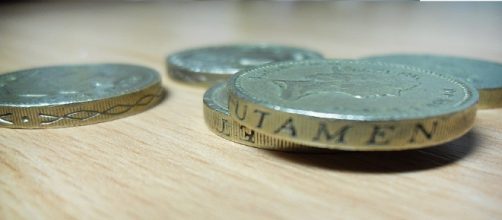The British economy continues to defy the aftershocks of last year's Brexit vote, despite ongoing negotiations and sterling sinking to its lowest level since 2009.
The UK economy has displayed signs of stability after a volatile start to the year. Inflation has slowed to 2.6 per cent and unemployment remains at 4.5 per cent, its lowest level since records began in 1971. July saw a surplus of £0.2 billion, compared to last year's deficit of £0.3 billion. This is the first budget surplus since 2002.
This positive economic outlook comes as the pound recently fell against the dollar and the euro in the face of rocky EU negotiations.
One pound now buys 1.0867 euros, a level not reached since 2009. The eurozone witnessed a strong August, according to an IHS Markit survey published on Wednesday. The latest purchasing managers index (PMI) readings highlighted a strong performance in the single currency area.
This country is failing to share the benefits
Two senior experts have warned that long-term economic growth is likely to stagnate. Andrew Sentance, a former member of the Bank of England's monetary policy committee, said Britain is missing out on higher levels of growth experienced on the continent. He said that whilst he expected European economic growth to benefit the UK, the Brexit discussions mean this country is failing to share the benefits.
This year's public sector net borrowing- which excludes government support for banks- was £1.9 billion higher than last year's figure of £22.8 billion. Yet tax receipts were the highest since records started in 1999, as they increased by £0.8 billion from £8 billion in July 2016.
There will be no ease on cuts
A Treasury spokesperson welcomed the news, though they warned that the country's national debt remains at a staggering £65,000 for every UK household. They added that there will be no ease on cuts as the Government sticks to its fiscal plan to reduce the deficit.
Eurozone GDP rose by 0.6 per cent in the three months to June, twice as fast as Britain's pace of growth in the second quarter of 2017.
The eurozone expanded by 2.3 per cent during that quarter, compared with the UK, which grew at a rate of 1.7 per cent. PMI figures came in at 55.8, a slight increase from 55.7 in July. Figures above 50 indicate expansion.
The news comes as Brexit Secretary, David Davis, attempts to prioritise free trade in the face of stiff resistance from the EU's 27 leaders. The Government's compromise on the jurisdiction of the European Court of Justice could make it likely that the European Council will agree to extend the remit of negotiations to include trade. The trading bloc's chief negotiator, Michel Barnier, has made it clear progress must be made on Ireland, EU citizens' rights and the divorce bill before discussions on trade can commence.
Trade with the rest of the world is hampered by the EU
The Institute of Economic Affairs think-tank said the economy will not be damaged if Theresa May fails to secure a trade deal with Brussels. They say that trade with the rest of the world is hampered by the EU.
The positive economic news is beginning to impact upon households. The consumer price index (CPI) figure of 2.6 per cent was aided by a drop in the price of petrol and pressure from imports such as clothing, household items and food and drink.
The Government's lack of progress on the Brexit negotiations is likely to dampen this positive news in the months to come. The Bank of England is expecting the CPI to increase to 3.6 per cent this year.
Philip Shaw, an economist at Investec, said the fall in sterling will soon filter through to the high street. Investors are also reluctant to relocate to the UK due to uncertainty.
With the euro rising in strength, the President of the European Central Bank (ECB), Mario Draghi, defended the eurozone's loose monetary policies on Wednesday. Mr. Draghi failed to indicate whether the ECB will sell off its £1.8 trillion asset purchasing programme and increase interest rates soon.

